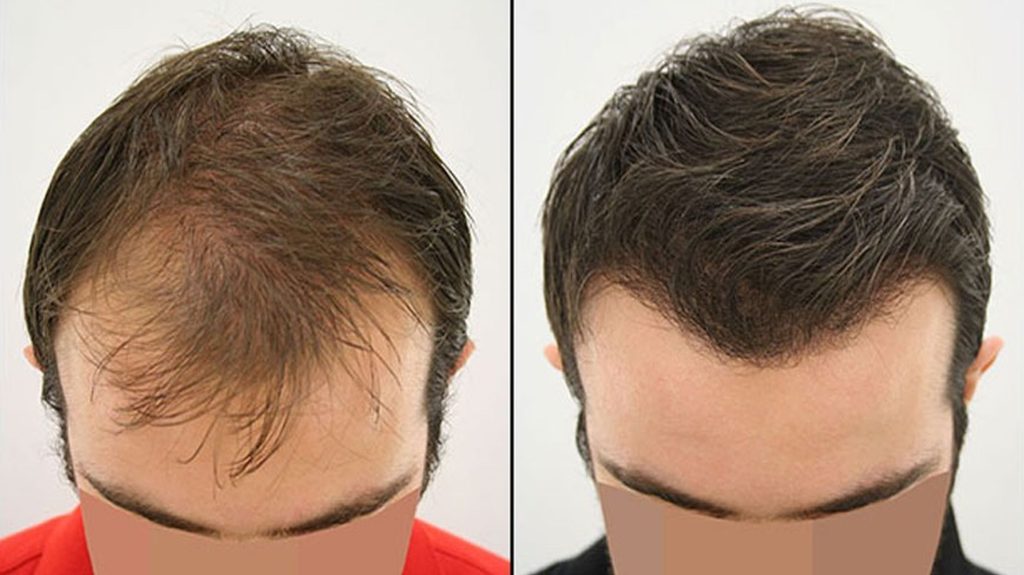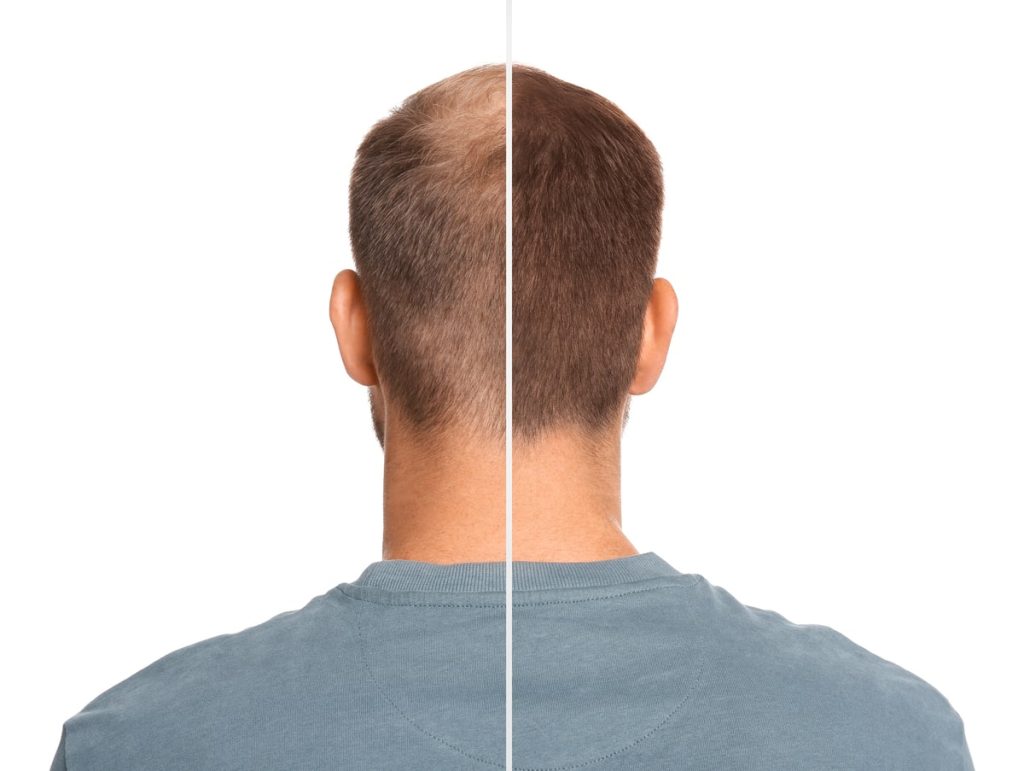Aspirin is a widely used medication known for its pain-relieving and anti-inflammatory properties. However, its benefits extend beyond just treating headaches and muscle aches. In the context of hair transplantation post-operation, aspirin has been shown to have potential benefits in promoting healing and reducing the risk of complications. In this blog article, we will explore the use of aspirin in the context of hair transplantation, its potential benefits, and the best practices for using it post-operation.
Efficacy of Aspirin in Reducing Post-Operative Swelling in Hair Transplantation

Post-operative swelling is a common issue following hair transplantation procedures, and it can cause discomfort and anxiety for patients. As a result, there is a constant search for effective remedies to minimize swelling and improve the overall experience for individuals undergoing hair transplant surgery.
The Role of Aspirin in Swelling Reduction
Aspirin, a well-known non-steroidal anti-inflammatory drug (NSAID), has been widely used for its pain-relieving and anti-inflammatory properties. Recent studies have also suggested that aspirin may play a significant role in reducing post-operative swelling in various surgical procedures, including hair transplantation.
Here are some reasons why aspirin may be effective in reducing post-operative swelling:
- Anti-inflammatory Properties: Aspirin is known for its ability to reduce inflammation by inhibiting the production of prostaglandins, which are hormone-like lipids that play a key role in the body’s inflammatory response. By suppressing the activity of prostaglandins, aspirin can help minimize swelling following surgery.
- Blood Thinning Effect: Aspirin is also a blood thinner, which means it can prevent the formation of blood clots. This can be beneficial in reducing post-operative swelling, as it promotes better blood circulation and prevents fluid retention in the surgical area.
- Pain Relief: In addition to its anti-inflammatory properties, aspirin can provide effective pain relief for patients following hair transplant surgery. By alleviating pain, aspirin can contribute to a more comfortable recovery process and reduce the overall stress on the body, which may help minimize swelling.
Considerations and Precautions
While aspirin may offer potential benefits in reducing post-operative swelling, it is important for patients to consult with their healthcare provider before taking aspirin or any other medication. Certain individuals may have medical conditions or be taking other medications that could interact with aspirin, leading to potential complications. Additionally, the dosage and frequency of aspirin intake should be carefully determined based on the individual’s medical history and specific needs.
Ultimately, the efficacy of aspirin in reducing post-operative swelling in hair transplantation may vary for each patient, and it should be approached with careful consideration and professional medical guidance.
Potential Benefits of Aspirin in Minimizing Pain and Discomfort After Hair Transplant Surgery

After undergoing a hair transplant surgery, many patients experience varying levels of pain and discomfort. This can often be managed with the use of over-the-counter pain medications, such as aspirin. While aspirin is commonly known for its use as a blood thinner, it also has potential benefits in minimizing pain and discomfort after a hair transplant surgery.
How Aspirin Works in Minimizing Pain
Aspirin works by inhibiting the production of certain chemicals in the body that are responsible for causing pain and inflammation. This can help to reduce the discomfort experienced after a hair transplant procedure. Additionally, aspirin can also help to lower fever, which can sometimes occur as a result of the body’s response to surgery.
Reducing Swelling with Aspirin
Swelling is a common side effect of hair transplant surgery, especially in the days immediately following the procedure. Aspirin’s anti-inflammatory properties can help to reduce swelling, which in turn can minimize pain and discomfort. By taking aspirin as directed by your surgeon, you may experience less swelling and a more comfortable recovery.
Consultation with a Physician
It is important to note that while aspirin can be beneficial in minimizing pain and discomfort after hair transplant surgery, it is crucial to consult with your physician before taking any medication. Your surgeon will be able to provide personalized recommendations based on your unique health profile and the specifics of your surgery.
| Potential Benefit | Explanation |
|---|---|
| Pain Reduction | Aspirin inhibits pain-causing chemicals in the body, reducing discomfort. |
| Swelling Reduction | Aspirin’s anti-inflammatory properties can help minimize swelling after surgery. |
| Consultation | It is important to consult with a physician before taking any medication post-surgery. |
Overall, aspirin has the potential to be a valuable tool in managing pain and discomfort after hair transplant surgery. When used as directed and in consultation with a physician, it can contribute to a smoother and more comfortable recovery process for patients.
Exploring the Role of Aspirin in Improving Healing and Recovery Following Hair Transplantation

Hair transplantation is a surgical procedure that involves moving hair follicles from one part of the body (the donor site) to a bald or balding part of the body (the recipient site). While the procedure itself has advanced significantly in recent years, with techniques such as FUE (Follicular Unit Extraction) and FUT (Follicular Unit Transplantation) becoming more commonplace, the recovery process is still an important aspect of the overall success of the procedure.
One potential factor in improving the healing and recovery following hair transplantation is the use of aspirin. Aspirin, a commonly used medication for its anti-inflammatory and blood-thinning properties, has been a subject of interest in the field of hair transplantation for its potential benefits in the post-operative period.
The Role of Aspirin in Healing and Recovery
Research has suggested that aspirin may play a role in improving the healing and recovery process following hair transplantation. One of the key benefits of aspirin is its ability to reduce inflammation, which can help to minimize discomfort and promote faster healing after the procedure. Additionally, aspirin’s blood-thinning properties may also aid in the healing process by improving blood flow to the scalp, which is essential for the survival of transplanted hair follicles.
Furthermore, aspirin may also have a potential role in reducing the risk of blood clot formation, which can be a concern in the immediate post-operative period. By reducing the risk of blood clots, aspirin may help to prevent complications and promote a smoother recovery process for the patient.
The Importance of Post-Operative Care
While the potential benefits of aspirin in improving healing and recovery following hair transplantation are promising, it’s important to note that any medication should only be taken under the guidance of a healthcare professional. Patients should always consult with their surgeon before starting or stopping any medication, including aspirin, to ensure that it is safe and appropriate for their specific situation.
Ultimately, the role of aspirin in improving healing and recovery following hair transplantation is an area of ongoing research and discussion in the field. As our understanding of the potential benefits of aspirin continues to evolve, it may become an important aspect of post-operative care for patients undergoing hair transplantation, alongside other key factors such as proper wound care, minimizing physical activity, and following the surgeon’s specific instructions for optimal healing and recovery.
It’s clear that the role of aspirin in improving healing and recovery following hair transplantation is an important consideration for both patients and healthcare professionals alike. As ongoing research continues to explore the potential benefits of aspirin in this context, it’s important to stay informed and engaged with the latest developments to ensure the best possible outcomes for patients undergoing hair transplantation.
The Impact of Aspirin on Inflammation Control in the Early Stages of Hair Transplantation Recovery
Hair transplantation is a popular procedure for individuals looking to restore their hairline and achieve a fuller head of hair. However, the recovery process after a hair transplant can be challenging, particularly when it comes to managing inflammation in the early stages. In recent years, there has been growing interest in the potential of aspirin to help control inflammation and improve the recovery process for hair transplant patients.
Aspirin, also known as acetylsalicylic acid, is a non-steroidal anti-inflammatory drug (NSAID) that is commonly used to reduce pain and inflammation. It works by inhibiting the production of certain chemicals in the body that are responsible for promoting inflammation. This makes aspirin a potentially valuable tool in the early stages of hair transplantation recovery, where controlling inflammation is crucial to the success of the procedure.
The Role of Aspirin in Inflammation Control
Research has shown that aspirin can effectively reduce inflammation by blocking the activity of cyclooxygenase enzymes, which are involved in the production of pro-inflammatory prostaglandins. By inhibiting these enzymes, aspirin helps to suppress the body’s inflammatory response, leading to a reduction in swelling, redness, and discomfort at the site of the hair transplant. This can ultimately contribute to a smoother and more comfortable recovery for patients.
The Benefits of Aspirin for Hair Transplant Patients
One of the main benefits of using aspirin in the early stages of hair transplantation recovery is its ability to minimize post-operative swelling and discomfort. By controlling inflammation, aspirin can help to prevent the formation of edema, or fluid retention, in the scalp, which is a common side effect of the procedure. This can result in a more natural-looking and less puffy appearance during the initial healing period.
In addition to its anti-inflammatory properties, aspirin may also have a positive impact on the overall success of the hair transplant. By reducing swelling and promoting a more comfortable recovery, aspirin can help to protect the newly transplanted hair follicles from damage and improve their chances of survival. This can lead to a more aesthetically pleasing outcome for the patient in the long run.
Considerations for Aspirin Use in Hair Transplantation Recovery
While aspirin can be a valuable tool for controlling inflammation in the early stages of hair transplantation recovery, it is important for patients to use it under the guidance of their healthcare provider. Aspirin is not suitable for everyone, and its use may be contraindicated in certain individuals, such as those with a history of bleeding disorders or stomach ulcers. Patients should always consult with their surgeon or physician before incorporating aspirin into their post-operative recovery regimen.
Furthermore, aspirin should be used in moderation and according to the recommended dosage guidelines. Excessive or prolonged use of aspirin can lead to potential side effects, such as gastrointestinal irritation or bleeding. Patients should carefully follow their healthcare provider’s instructions and report any adverse reactions or concerns during the recovery process.
In conclusion, the use of aspirin for inflammation control in the early stages of hair transplantation recovery has the potential to offer significant benefits for patients. By effectively reducing swelling and discomfort, aspirin can contribute to a smoother and more successful recovery, ultimately leading to improved outcomes for individuals undergoing a hair transplant procedure.
Optimizing Patient Outcomes: Utilizing Aspirin for Enhanced Post-Operative Care in Hair Transplantation

Hair transplantation is a delicate surgical procedure that requires careful post-operative care to ensure optimal results for the patient. One often overlooked aspect of this care is the use of aspirin as a potential tool for enhancing recovery and reducing the risk of complications.
The Importance of Aspirin
Aspirin, a common over-the-counter medication, has long been known for its anti-inflammatory and blood-thinning properties. These properties make it an ideal candidate for use in post-operative care for hair transplantation patients. By reducing inflammation at the surgical site and preventing blood clots, aspirin can aid in quicker recovery and minimize the risk of complications such as infection or poor graft survival.
Optimizing Patient Outcomes
Incorporating aspirin into the post-operative care plan for hair transplantation patients is crucial for optimizing their outcomes. By utilizing aspirin, surgeons and medical professionals can ensure that patients experience less pain and swelling, allowing for a more comfortable recovery period. Additionally, the blood-thinning effects of aspirin can promote better blood circulation to the transplant site, supporting improved graft survival and overall results.
Overall, the utilization of aspirin in post-operative care for hair transplantation patients is a simple yet effective way to enhance their recovery and improve their outcomes. By incorporating this well-established medication into the care plan, medical professionals can provide their patients with the best possible experience and results.
Conclusion
In conclusion, the use of aspirin for enhanced post-operative care in hair transplantation is a valuable strategy for optimizing patient outcomes. By harnessing the anti-inflammatory and blood-thinning properties of aspirin, medical professionals can support quicker recovery, reduced complications, and improved overall results for their patients. It is essential to prioritize the integration of aspirin into post-operative care plans to ensure the best possible experience and outcomes for hair transplantation patients.
Frequently Asked Questions
What is aspirin used for?
Aspirin is commonly used to relieve minor aches and pains, reduce fever, and provide anti-inflammatory benefits.
What are the potential side effects of aspirin?
Common side effects of aspirin may include stomach irritation, heartburn, and nausea. Serious side effects can include stomach ulcers, bleeding, and allergic reactions.
Can aspirin be used for preventing heart attacks?
Yes, aspirin is often recommended for the prevention of heart attacks and strokes in individuals at high risk for cardiovascular events.
Is it safe to take aspirin every day?
It is important to consult with a healthcare professional before taking aspirin daily, as it can have potential risks for some individuals, such as gastrointestinal bleeding.
Can aspirin interact with other medications?
Yes, aspirin can interact with certain medications, so it’s essential to inform your healthcare provider about all the medications you are taking.
